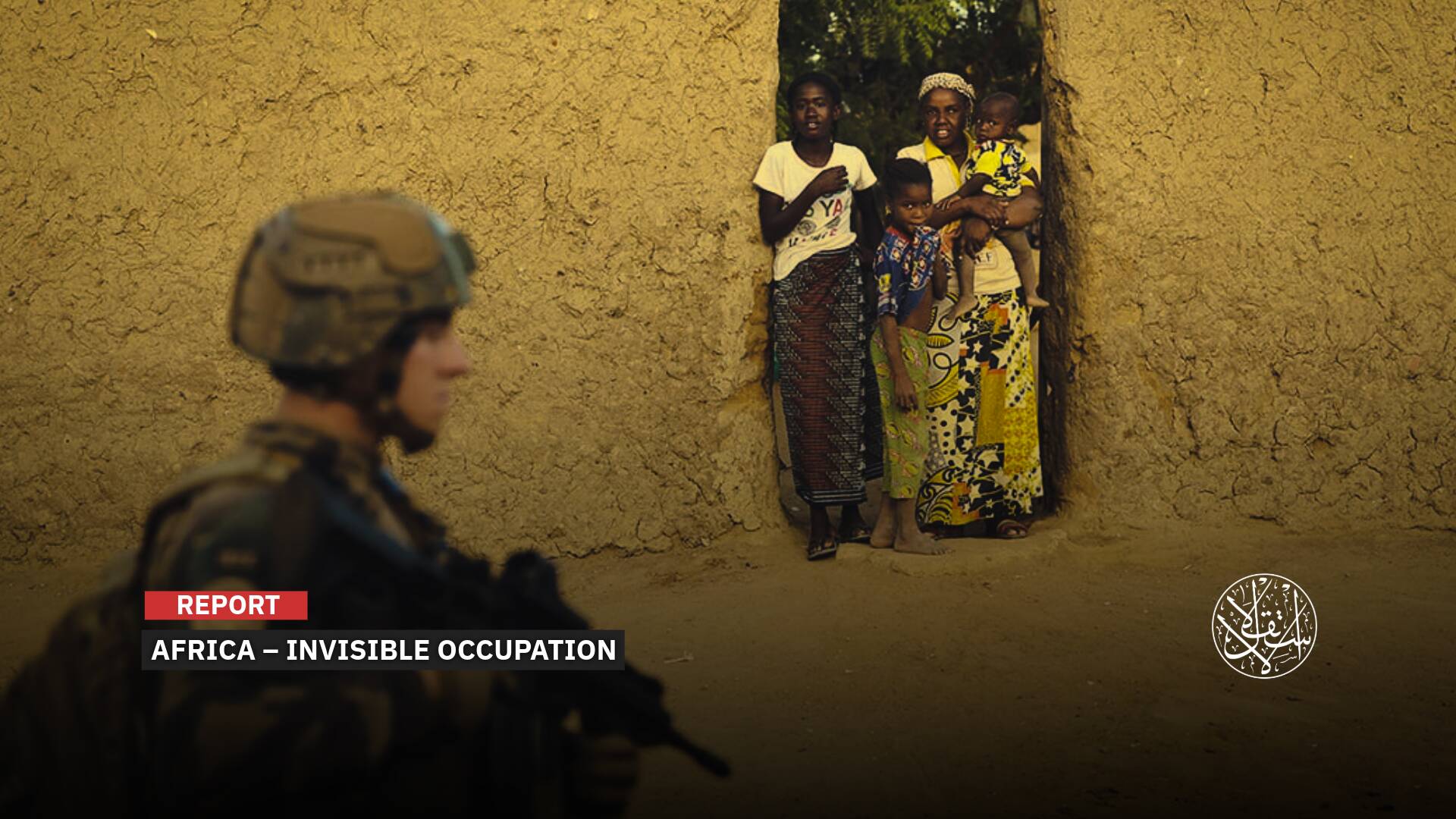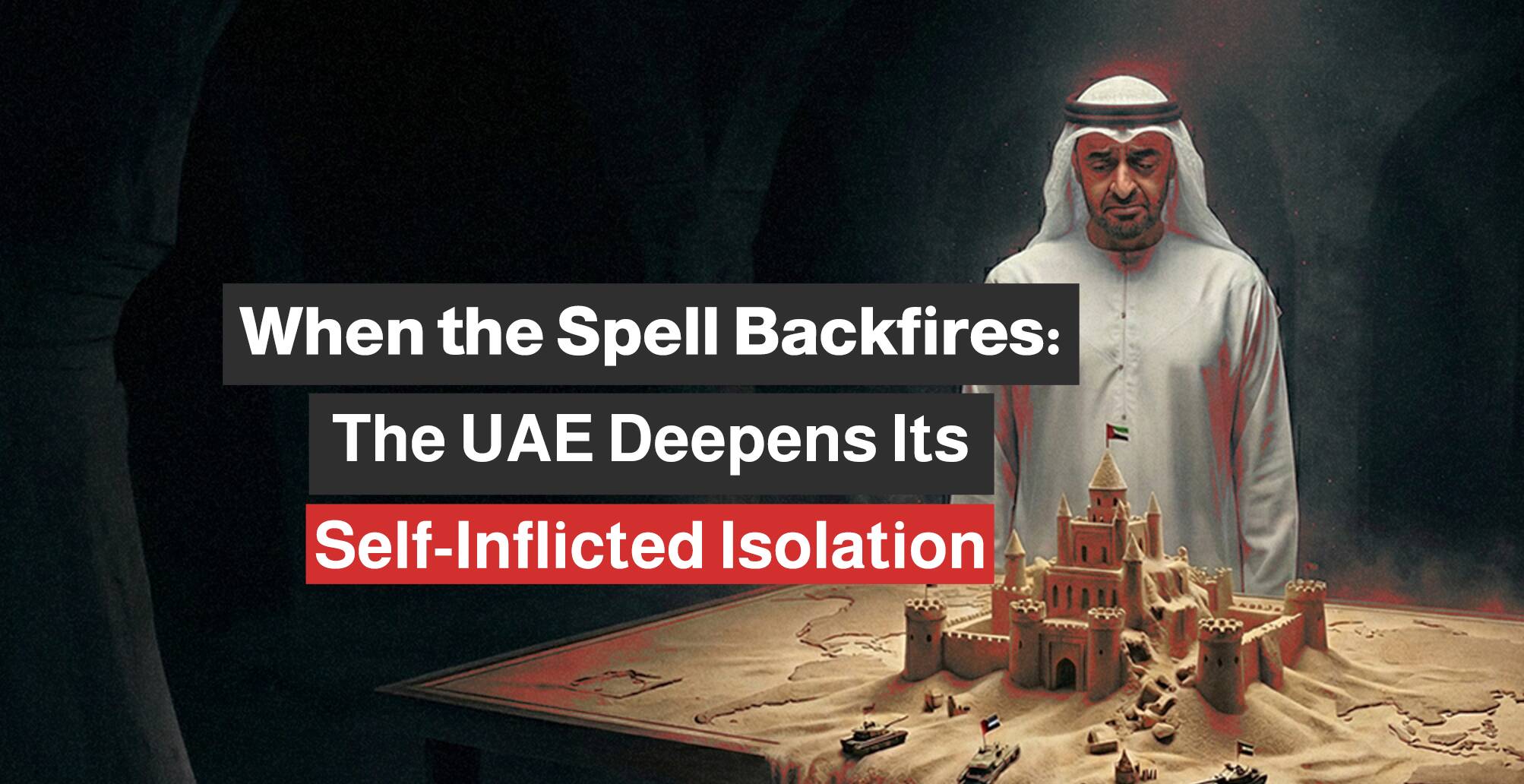The Espionage Activities of the UAE on Politicians and Celebrities Have Once Again Come to the Forefront

Since 2015, information exposing the UAE’s surveillance of hotel guests in Dubai, particularly politicians, journalists, and celebrities, has been spreading. The purpose behind this surveillance is to exert pressure and blackmail individuals to serve its own interests.
In early May 2023, activists launched hashtags to expose the practices of the UAE. Technological experts have shared videos demonstrating the discovery and detection of Emirati surveillance devices within their hotel rooms.
كيف تتجسس الامارات على الساسة والاعلاميين والمشاهير وكل من تريد استهدافه عبر ممارسة الضغوط والابتزاز لتحقيق مآربها!#سيديهات_فنادق_دبي pic.twitter.com/uw5GrPpnJz
— عبدالله محمد (@abdullahebb) April 30, 2023
Activists linked the campaign to the threat made by Israeli journalist, associated with Mossad, Edy Cohen, against Kuwaiti tweeter Waleed Almutairi. Cohen threatened to leak a video recorded in al-Mutairi’s hotel room in Dubai.
This threat came after Almutairi voiced support for the Palestinian cause in front of an Israeli family at Dubai airport.
The activists considered the threat against the Israeli journalist as confirmation of the accusations leveled against the UAE regarding its espionage operations, suggesting that its hotels serve as a spying hub for Israeli intelligence.
Official Emirati sources neither denied nor confirmed the authenticity of the video that Cohen partially broadcasted to al-Mutairi before deleting it.
This lack of denial indicates the validity of the claims regarding the UAE and Israeli surveillance of hotel guests for purposes of blackmail.
What is Saudi Arabia’s involvement?
Another aspect of the “Hotels of Dubai” campaign is related to the Saudi–Emirati conflict and Abu Dhabi’s pressure on Yemenis, as well as their blackmail to coerce them into cooperating with the UAE’s plans for its separatist project in southern Yemen, through what is known as the Southern Transitional Council.
The “Independence” movement has observed significant participation in this campaign against Emirati surveillance of politicians and celebrities, particularly by Saudis who vehemently criticized the UAE.
This indicates that the campaign carries a political dimension and reflects the Saudi–Emirati disagreements.
This comes as Riyadh has begun taking steps to end the war in Yemen through a peace agreement with the Houthi rebels, contrary to the UAE’s desire to stay and protect its economic interests (oil) and strategic interests (ports).
Saudi Twitter user Ali al-Mirri spoke about a “major scandal” involving the exploitation of Dubai’s hotels and tourism by Emirati security authorities for the purpose of spying on citizens and entrapping certain individuals, especially writers, activists, and journalists.
المغرد السعودي علي المري
— عبدالله السالمي Abdullah Alsalemi (@al__salemi) May 1, 2023
المغردين الاماراتيين يتهمون ولي العهد السعودي بتعاطي مادة الشبو ..! #سيديهات_فنادق_دبي pic.twitter.com/Aa2gxIveEc
Saudi nationals criticized the Emirati surveillance of hotel guests, with some individuals sharing their personal experiences of being spied upon. They accused Abu Dhabi through social media platforms of seeking to further its own interests at the expense of Yemen and Saudi Arabia.
Notably, the campaign reflected the recent Saudi–Emirati disagreements that have escalated due to conflicts over leadership in the Arab world amid Egypt’s diminishing influence.
In early February 2023, a Saudi–Emirati dispute erupted, leading to a heated exchange among writers affiliated with both countries regarding who had the right to lead a new Arab axis in the region following Egypt’s diminished role.
This was followed by another Saudi–Emirati battle concerning the “Abrahamic religion” and the “Abrahamic House.”
At that time, a disagreement emerged regarding what was called the “new Arab axis,” with the UAE asserting its leadership and mocking the official Saudi voices.
Another aspect of Saudi Arabia’s participation in the campaign against the UAE was revealed by Saudi Twitter user Mishal al-Qahtani when he accused Emirati activists of spreading false information about Crown Prince Mohammed bin Salman, alleging “deviant behavior” and drug abuse, according to his claims.
History of Emirati Espionage
The issue of Emirati surveillance on hotel guests, especially celebrities, politicians, and journalists, and the recording of videos inside their rooms is not new and has been exposed on several occasions.
One notable incident occurred in April 2015 when an unidentified Saudi tourist revealed the presence of a surveillance camera pointed at his bed in a hotel. However, the Dubai government denied the accusation and claimed that it was a modern satellite device and not used for spying.
As the tourist was involved in the incident, he was arrested by the Emirati authorities but later released.
He then filed a lawsuit in Dubai’s court, seeking financial compensation of up to five million Saudi riyals for the damages he suffered.
The outcome of the case is unknown.

In July 2021, another Saudi tourist reiterated the disclosure through a video of a secret camera found in his room in one of Dubai’s luxurious hotels.
The video exposed how security authorities exploit hotels to entrap people by filming them in compromising situations or recording their private moments in bedrooms.
The tourist revealed the presence of a hidden camera in his room and demonstrated how it was meticulously placed to be difficult for anyone to notice. However, he later deleted the video and tweet from his account following unknown threats.
Saudi activist Mishary al-Fahmi stated in a video on Twitter that the Riyadh embassy in Abu Dhabi acknowledged the existence of videos and recordings after a Saudi citizen filed a complaint against one of the hotels in the UAE, without providing further details.
He further mentioned that surveillance cameras were discovered inside the bedrooms, and based on that, the Saudi tourist demanded compensation of 5 million Saudi riyals.
Prominent Gulf accounts previously exposed shocking details about the methods employed by the Emirati regime to politically undermine Arab politicians and journalists through espionage-based blackmail.
These accounts highlighted significant scandals regarding hotel rooms and bathrooms in Abu Dhabi and Dubai, revealing how every visiting politician and journalist could be blackmailed when collaborating with the Emirati regime.
It was reported that many politicians and journalists succumb to sexual enticements and alcoholic beverages, which Abu Dhabi exploits as a tool for blackmail.
Den of Espionage
A report by the Qatari newspaper Al-Sharq on July 27, 2019, confirms that the surveillance concerns of the Abu Dhabi regime extend beyond its citizens to anyone who sets foot in the UAE, starting from airports and ending in hotel bedrooms.
“One day, an Emirati intelligence officer may approach you from your own mobile device if you reside in a country governed by the former and current Crown Prince of Abu Dhabi, Mohammed bin Zayed. The same security apparatus that monitors your phone may be the one capturing footage of you in your hotel room in Dubai,” according to the newspaper.
It also mentioned that the UAE has gained notoriety in the world of espionage, becoming the leading country in electronic surveillance in the region.
The Qatari newspaper affirmed that the UAE has resorted to “surveillance normalization.”
On July 5, 2019, the Federal Authority for Identity and Citizenship launched a new initiative to welcome visitors to the country.
The initiative included providing each visitor with a mobile SIM card offering free calls and internet access, all under the guise of creating safe and smart cities. However, in reality, it is a tool for monitoring and tracking individuals within the Emirati-regulated Falcon Eye surveillance system.
The Emirati State Security apparatus has compelled hotels to install cameras in bedrooms to spy on residents, tourists, and visitors, reflecting Abu Dhabi’s obsession with espionage. This has been confirmed by various media and intelligence reports.
On December 21, 2017, Foreign Policy magazine published an article titled “The UAE is paying ex-CIA officers to build a spy empire in the Gulf”. It revealed their surveillance activities on everyone through these operatives, who were paid $1,000 each and provided with accommodation in villas or 5-star hotels in Abu Dhabi, according to a former officer interviewed by the magazine.
Foreign Policy stated that the UAE’s surveillance efforts do not stop at its citizens and residents; they go beyond that to collect information beyond its borders to carry out other missions abroad.
It has been confirmed that between 2007 and 2015, Abu Dhabi established the AGT system, one of the most comprehensive surveillance systems in the world, comprising thousands of cameras and extended sensors along the entire UAE border, totaling 620 miles.
The information collected is stored in a database managed by one of its major companies located in the heart of “Israel,” headed by a former chief of military intelligence, whose name was not mentioned.
It was explained that this comprehensive surveillance system was established by an Israeli in the UAE, known as Falcon Eye.
It is believed that the system was fully activated in mid-2022 to tighten strict and intimidating control over all forms of communication in the country.
Under this system, Abu Dhabi is capable of analyzing millions of posts containing specific ideas or words transmitted through social media platforms, measuring their impact, and providing a spectrum analysis of this influence. It can even engineer public opinion according to its whims.
On January 30, 2019, Reuters exclusively published a report titled “UAE Used Cyber Super-Weapon to Spy on iPhones of Foes.” It quoted five former officers and software documents seen by Reuters, stating that the surveillance tool enabled the UAE to monitor hundreds of targets since 2016, including a high-ranking Turkish official and Nobel laureate Yemeni activist, Tawakkol Karman.
Weeks later, the agency published another exclusive report featuring a program host on BBC Arabic television.
Surveillance was also conducted on the head of Al-Jazeera network, Hamad bin Thamer Al Thani, and other prominent Arab media figures such as presenter Faisal al-Qassem and writer Azmi Bishara.
According to leaked messages, the Emiratis also requested interception of calls made by former Lebanese Prime Minister Saad Hariri and Emirati opposition figure Ahmed Mansoor, one of the leading defenders of human rights who was later arrested.
In both cases, Emirati operatives used a sophisticated spying tool called Karma, “in a campaign that shows how potent cyber-weapons are proliferating beyond the world’s superpowers and into the hands of smaller nations,” as described by Reuters.
Sources
- Deep Pockets, Deep Cover: The UAE Is paying Ex-CIA officers to build a spy empire in the Gulf
- Exclusive: UAE used cyber super-weapon to spy on iPhones of foes
- The Abu Dhabi regime's concerns about espionage extend from citizens to hotel bedrooms and between residents and visitors [Arabic]
- Saudi Arabia threatens the Emirates to expose its assassinations in Aden and its secret prisons [Arabic]
- Has the 'practical' division of Yemen begun? The separatist council is preparing for a meeting, granting it a 'mandate' — Southern components 'apologize' and disputes of 'multiple colors' [Arabic]











